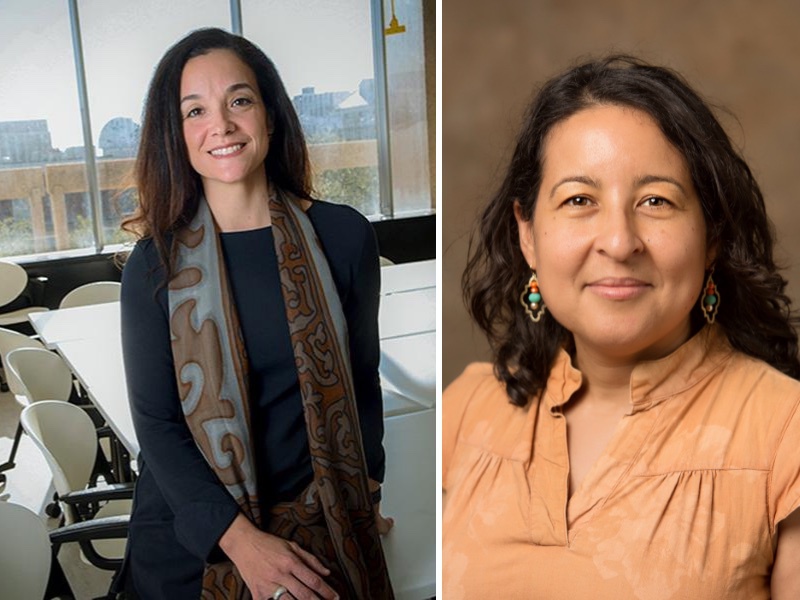New leadership in maternal and child health focuses on equity-centered approach

Photos of Dr. Alessandra Bazzano (Left) and Dr. Shokufeh Ramirez (Right)
Dr. Alessandra Bazzano has been named the new director of the Tulane Center of Excellence in Maternal and Child Health (CEMCH) housed in the Tulane School of Public Health and Tropical Medicine. CEMCH focuses on improving the health status of the maternal and child health (MCH) population in Louisiana and the United States.
CEMCH seeks to improve the health of women, infants, children, and their families through the development of the MCH workforce. CEMCH does this by providing opportunities for training and experience for students at the School of Public Health and current public health practitioners. Bazzano’s background in behavior and health over the life course, focusing on maternal, newborn, and child health and nutrition, makes her an ideal leader for this center focused on education, science, and practice.
Bazzano has long expertise in maternal and child public health, having completed her doctoral work using a medical anthropology approach to understand pregnancy and newborn health, followed by applied experience in interventions, evaluations, and mixed methods research. Nutrition and its relationship to chronic disease are also an important part of MCH work, with a focus on community-based approaches and promoting evidence informed care for infant feeding and lactation. Issues related to reproductive and sexual health, preconception care, and access to respectful and high-quality perinatal care, are also important to Bazzano, who applies an interdisciplinary lens to health issues.
“We are striving for a complete approach to MCH, inclusive of fathers, families, LGBTQ+ populations, people with disabilities, and reflecting the richness and diversity of the population,” said Bazzano. “I am particularly excited to be working alongside Dr. Shokufeh Ramirez, who has stewarded the program for well over a decade, and whose dissertation work will guide our anti-racism approach to training and education.”
Ramirez has been with Tulane University for 14 years, after working as an epidemiologist and program manager for several health departments across the United States. As the assistant director of CEMCH, she directs training activities, including mentored leadership development activities for Master of Public Health students, seminars and workshops for students and practitioners, support for the Maternal and Child Health academic program, and technical assistance and collaboration with MCH practice partners. All of these activities are carried out with an emphasis on racial health equity.
Students at CEMCH, a federally funded center, are training to become the workforce who will shape MCH and public health in this country for decades to come. Improving maternal and child health through a life-course approach and confronting health disparities related to racism are significant issues.
Their goal as a training grant-focused center is equipping students with skills and competencies to be agents of change in these areas. In addition, they nurture students and offer personal and professional development. Finally, they provide a supportive environment where all their trainees feel welcome. Their greatest goal is for their trainees is to flourish in their personal lives and careers in public health.
CEMCH, and MCH broadly, are about leadership centered on collaboration and equity. In addition to focusing on addressing racism as a public health problem in MCH, another critical area that they will be prioritizing is mental health for children, young people, and parents in this country, which the pandemic has greatly impacted.
“This past summer, we piloted a mentoring program using a racial affinity group approach, with early career professionals in public health, one of whom is an alum of our program,” said Bazzano. “I’m also excited about incorporating a social innovation model for training scholars with equity-centered design thinking and transdisciplinary behavioral science approaches to offer more training in the future related to behavioral design, behavioral economics, and human-centered design.”
They are also developing an MCH student interest group and continuing longstanding collaborations with the many community-based organizations working in MCH and the Louisiana Office of Public Health Bureau of Family Health. Finally, they are fostering connections with their alumnae working in MCH around the country, particularly in New Orleans.
